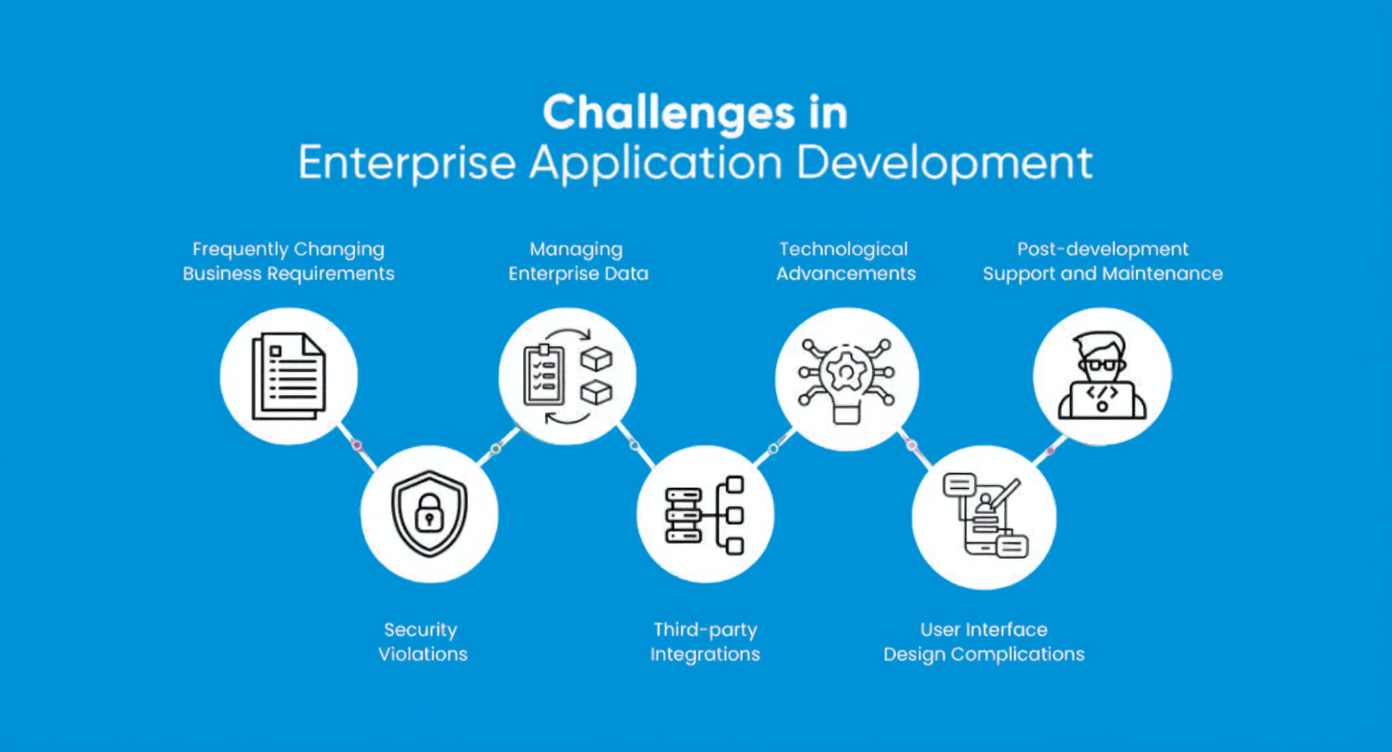In the world of computer science (CS), failure isn’t just inevitable—it’s essential. Whether you’re debugging a stubborn piece of code, bombing a technical interview, or struggling to land your first job, failure is woven into the fabric of every CS career. Read on to find out Why Failure Is Part of the CS Career Journey.
But here’s the truth: failure doesn’t mean you’re not cut out for tech. It means you’re learning.
In this blog, we’ll explore:
- Why failure is a natural part of the CS journey
- How successful developers use failure as fuel
- And how SynergisticIT’s Job Placement Program helps you navigate setbacks, build resilience, and emerge stronger than ever
The Myth of the Flawless Developer
There’s a persistent myth in tech: that great developers are born brilliant, effortlessly solving problems and breezing through interviews. In reality, even the most accomplished engineers have faced:
- Rejected job applications
Landing a dream job in tech is rarely immediate. Many developers face multiple rejections before finding the right opportunity. Whether it’s due to a competitive job market, a lack of experience, or a tough technical interview, rejection is a universal experience. According to a 2024 Stack Overflow Developer Survey, nearly 70% of developers reported being rejected from a job interview at least once—and 25% faced five or more rejections before landing their current role.
- Failed system designs
Designing scalable, reliable systems is a core skill for senior engineers, but it’s not something anyone masters overnight. Even experienced developers have created designs that didn’t scale, overlooked edge cases, or failed under unexpected conditions.
- Broken deployments
Pushing code to production is a rite of passage, and so is breaking production. From minor bugs to catastrophic outages, most developers have a story of a deployment gone wrong. These incidents, while stressful, teach critical lessons about testing, monitoring, and the importance of rollback strategies.
- Missed deadlines
Estimating how long a project will take is notoriously difficult. Unexpected complexities, shifting requirements, or underestimating technical debt can lead to missed deadlines. Experienced developers learn to manage expectations, communicate proactively, and prioritize effectively, but even they aren’t immune to the occasional delay.
- Burnout and imposter syndrome
The 2024 Atlassian State of Tech report indicated 58% of developers have experienced burnout in the past year. The pressure to keep up with rapidly evolving technologies, meet tight deadlines, and perform at a high level can take a toll. Many developers, regardless of their skill level, experience burnout or wrestle with imposter syndrome, questioning whether they truly belong in the field.
These struggles are a normal part of the journey. What sets a great developer apart isn’t perfection—it’s persistence.
Why Failure Is Inevitable in CS
1. CS Is Built on Problem Solving
Computer science is about solving complex, often ambiguous problems. You’ll try things that don’t work. You’ll hit dead ends. You’ll refactor code ten times before it runs. Failure is baked into the process.
- The Learning Curve Is Steep
From data structures to cloud computing, the CS landscape is vast. You won’t master everything overnight. You’ll struggle with recursion, misconfigure AWS, forget syntax, and misinterpret error logs. That’s normal. It’s how you grow.
- Interviews Are Designed to Challenge You
Technical interviews are intentionally difficult. They test not just your knowledge, but your problem-solving approach, communication, and resilience under pressure. Failing a few interviews doesn’t mean you’re unqualified—it means you’re gaining experience.
- Innovation Requires Risk
Building something new means taking risks. You’ll experiment, iterate, and sometimes fail. That’s how innovation happens—through trial, error, and adaptation.
- The Job Search Is a Numbers Game
Even with strong skills, landing a job takes time. You’ll face rejection, ghosting, and competition. It’s not personal—it’s part of the process.
Common Failures in the CS Journey
| Failure Type | Example | What It Teaches |
| Coding Errors | Null pointer exceptions, logic bugs | Debugging and attention to detail |
| Interview Rejections | Failing system design or DSA rounds | Communication and preparation |
| Project Setbacks | Missed deadlines, scope creep | Time management and collaboration |
| Job Search Frustration | No callbacks, low response rate | Resilience and strategy |
| Burnout | Overworking, losing motivation | Self-care and boundaries |
Each failure is a lesson in disguise.
Reframing Failure as Feedback
Instead of seeing failure as a verdict, treat it as data:
- A failed interview reveals gaps to improve
- A broken deployment teaches you about CI/CD
- A rejected resume shows you how to optimize your profile
- A tough project builds your grit and adaptability
Failure isn’t the end—it’s a checkpoint.
How Successful Developers Handle Failure
✅ 1. They Reflect and Learn
Great developers don’t just move past mistakes—they study them. After a bug slips into production or an interview doesn’t go well. They ask: What went wrong? What can I do differently next time?
✅ 2. They Seek Feedback
Instead of guessing where they fell short, successful developers ask for input. Whether it’s a mentor reviewing code, a peer giving mock interview feedback, or even an interviewer sharing insights, they get input from mentors, peers, and interviewers to improve.
✅ 3. They Keep Going
Persistence is the hallmark of every great developer. A failed deployment, a tough algorithm, or ten rejected applications doesn’t stop them. They apply again. They rebuild. They iterate. They don’t let one setback define them.
✅ 4. They Build Support Systems
No one succeeds in isolation. Developers who thrive build networks of support—through mentors, peers, online communities, and structured programs.
That’s where SynergisticIT’s Job Placement Program comes in.
How SynergisticIT Helps You Turn Failure Into Fuel
SynergisticIT’s Job Placement Program is designed not just to teach you tech skills—but to help you navigate obstacles, build resilience, and succeed in the face of setbacks.
Here’s how it supports you through the ups and downs of the CS journey:
1. Structured Learning That Reduces Overwhelm
Failure often stems from a lack of clarity. SynergisticIT provides:
- Clear learning paths
- Weekly goals and checkpoints
- Instructor support and peer collaboration
- Feedback loops to track progress
This structure helps you stay focused and avoid common pitfalls.
2. Real-World Projects That Build Confidence
You’ll build and deploy applications like:
- E-commerce platforms
- RESTful APIs
- Cloud-native dashboards
- Scalable microservices
These projects simulate real-world challenges—so you learn to fail, fix, and succeed in a safe environment.
3.Deep Technical Mastery That Prevents Repeat Mistakes
You’ll gain expertise in:
- Data Structures and Algorithms (DSA)
- Java, Python, Spring Boot
- AWS, Azure, GCP
- Full Stack Development (MERN, MEAN)
- DevOps tools like Docker, Jenkins, Kubernetes
This depth helps you avoid surface-level errors and build lasting competence.
4.Behavioral Interview Coaching That Builds Resilience
SynergisticIT helps you:
- Craft compelling STAR stories
- Practice mock interviews
- Reframe failures as growth moments
- Build a story bank of achievements
You’ll walk into interviews with clarity, confidence, and emotional readiness.
5. Resume and LinkedIn Optimization That Highlights Your Strengths
Failure in the job search often stems from poor positioning. SynergisticIT helps you:
- Showcase your technical depth
- Highlight cloud and DSA mastery
- Use keywords that attract recruiters
- Position yourself as a confident, capable developer
Your profile becomes a magnet for opportunities.
6. Employer Marketing and Placement Support
SynergisticIT doesn’t just train you—they help you get hired.
- Your profile is marketed to tech clients
- Interviews are scheduled and supported
- Feedback is provided to improve performance
- Offers are negotiated with guidance
This external validation reinforces your internal confidence.
7. Mentorship and Community That Keeps You Going
You’ll be surrounded by:
- Instructors who care
- Peers who share your journey
- Alumni who’ve overcome the same setbacks
This community helps you feel seen, supported, and inspired.
Success Stories: From Setback to Success
Many SynergisticIT graduates started with failure:
- CS grads who couldn’t crack interviews
- Career changers who felt lost
- Bootcamp grads who lacked depth
- Developers who faced rejection after rejection
Through deep learning and structured support, they landed roles at:
- Amazon
- PayPal
- Cisco
- Startups and mid-sized tech firms
They didn’t just get hired—they grew through the process.
Who Can Benefit?
SynergisticIT’s program is ideal for:
- CS grads who feel stuck
- Career changers seeking a second chance
- Bootcamp grads needing deeper mastery
- Junior developers facing rejection
- Anyone who wants to turn failure into fuel
If you’ve hit a wall, this program helps you break through.
Final Thoughts
Failure is not a flaw—it’s a feature of the CS journey. It teaches you, shapes you, and prepares you for success.
SynergisticIT’s Job Placement Program offers:
- Deep technical training
- Real-world project experience
- Behavioral coaching
- Resume and interview prep
- Employer connections
- And most importantly—resilience
You don’t have to fear failure. You can face it, learn from it, and rise above it.
👉 Explore success stories
👉 Watch our event videos
👉 Read our jobseeker blogs
Let’s turn your setbacks into stepping stones—starting today.







